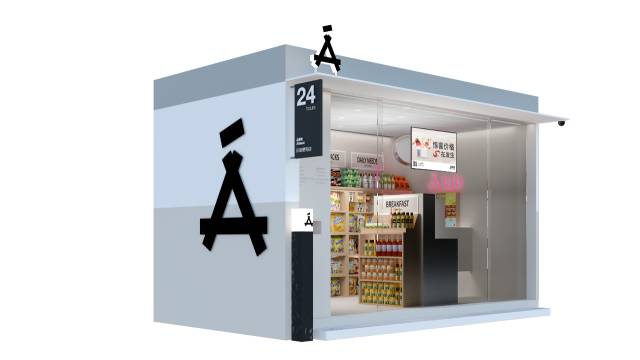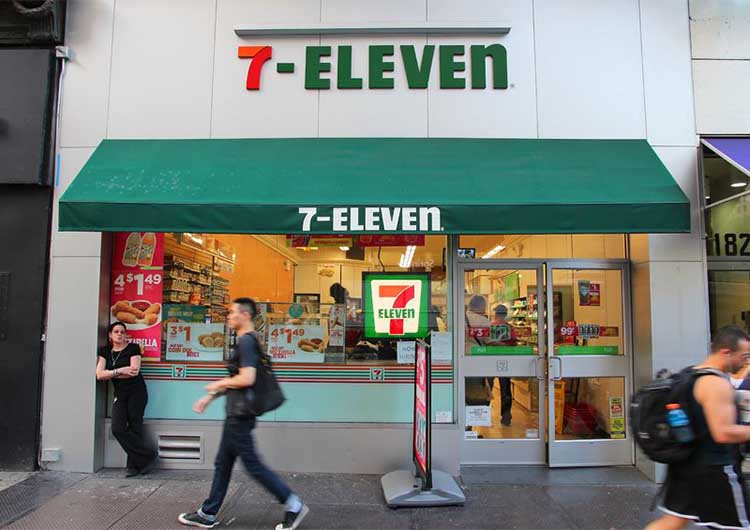Writer: Dun Yuying
Recently, Kr-Asia has learnt that ÁBianLi (A便利), the Shenzhen-located mini staff-less convenience store, raised ¥5 million in its angel round led by K2VC and followed by Next Capital. This will help with its store expansion and technology development.
ÁBianLi has two stores in Shenzhen, and another three are expected to open by the end of this month (including box stores and regular stores).

Other staff-less convenience stores in China also raised funds, such as BingoBox, F5 Future Store, DeepBlue Technology, Xingbianli, Xiaomaipu, Jian 24, EasyGo, FxBox, Bianlijia and Magic House.
The mushrooming players and racing capitals seem to be sending the same message: China’s convenience store market is ready to surge.
International experience indicates that the introduction stage of convenience store comes when the per capita GDP reaches $2,000 to $3,000; rapid growth happens when it reaches $5,000; fierce competitions start when it comes to $10,000.
Li Heshan, founder of ÁBianLi sees a definite opportunity lying ahead for the Chinese convenience stores, as China’s per capita GDP exceeded $8,000 in 2016.
Since the Japanese mode of convenience store is not totally suitable for the population density in China, Li opted to facilitate an easier and more efficient shopping method with mini staff-less convenience store, starting from less busy areas.

Specifically: with dense population and developed urban traffic, a convenience store in Japan normally covers around 100m2, serving over 3,000 people who live within 1-2km. In China, residential and commercial areas are separated. Convenience stores are not well developed in areas with fewer customers.
Therefore, ÁBianLi chose to start from less densely populated communities, streets and office buildings, to meet the daily needs of some 1,000 people within 300m.
Of course, the lower population density posed higher requirements on the store performance efficiency. In this regard, ÁBianLi made its stores smaller (a single store covers 10-15m2 at a cost of about 100,000 yuan) and replaced staff with technology:
- Smart shelves: customer flow monitoring, which was hardly possible offline before, has enabled intelligent product selection and replenishment. Shelves with microprocessors, smart sensors and cameras can visually and tactilely identify the users. In addition to customer shopping paths and habits, smart shelves also record the daily PV/UV.
- Settlement system: users can settle by themselves. A hybrid solution of RFID + visual sense is adopted, used for the identification of product and user behavior respectively.
As for product selection, ÁBianLi currently provides standard products only. The number of a single store SKU is over 300. The per customer transaction is about 14 yuan and the gross profit has reached 20%. The single-store sales per day are close to 1,500 yuan.

The scale of the supply chain is still to be developed. Without its self-built supply system, ÁBianLi is basically getting goods from nearby supermarkets and retailers now.
In terms of logistics and warehousing, ÁBianLi uses front warehouses. Each of them is equipped with 4-5 people, serving around 10 stores nearby, responsible for purchasing, replenishment, customer service and daily operations.
Moreover, different from conventional convenience stores, ÁBianLi adopted a dynamic pricing mechanism, which has enabled automatic price adjustment with online algorithms. It helped meet different needs of customers influenced by factors such as time, weather, traffic and specific matters.
Currently, ÁBianLi has a full-time team of more than 20 members. Its founder Li Heshan, a graduate of Johns Hopkins University, is a master in computer science. Li was a senior retail pricing engineer at Amazon. Other team members have previously worked for P&G, Easyget and Bluegogo.
